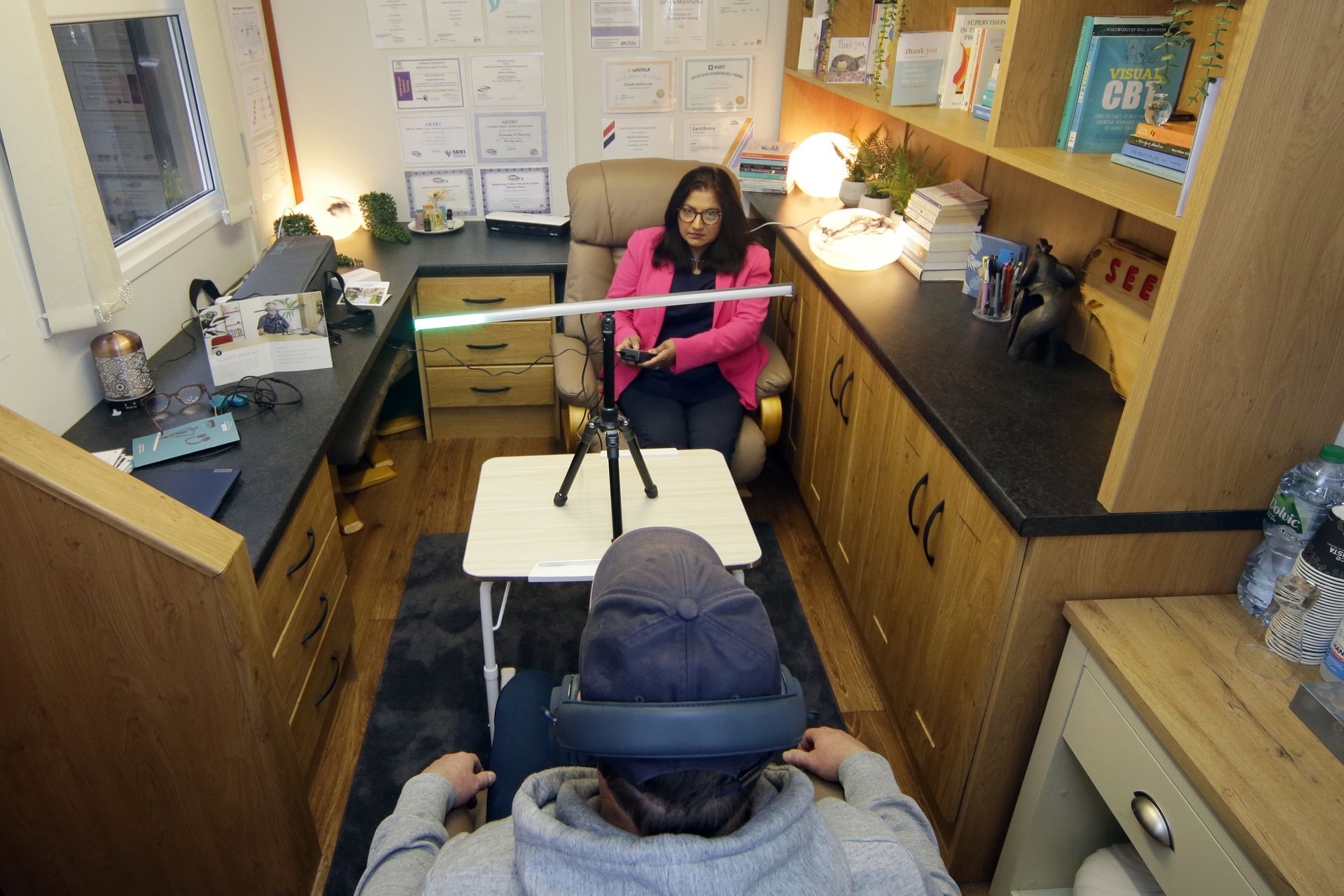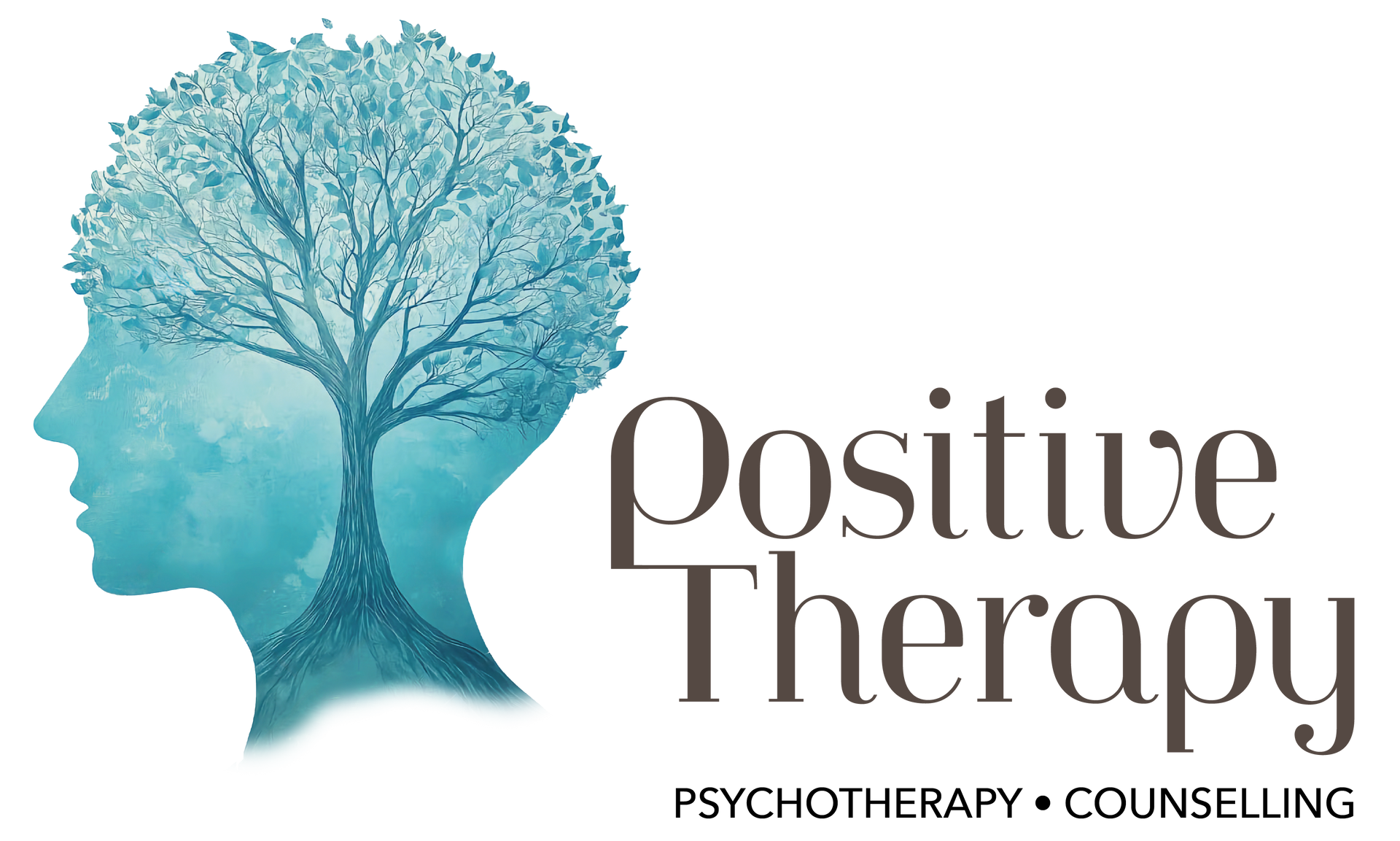EMDR (Eye Movement Desensitisation and Reprocessing)
EMDR is a structured, evidence-based therapy designed to help individuals process and recover from past experiences that may be impacting their mental health and well-being.
What is EMDR

The mind, much like the body, has an innate ability to heal itself. Much of this healing occurs during sleep, particularly during rapid eye movement (REM) sleep. Under normal circumstances, the brain processes new experiences and information automatically. However, when someone experiences trauma -whether a single distressing event, such as an accident, or prolonged adversity, such as childhood neglect, the brain’s natural coping mechanisms can become overwhelmed.
As a result, these experiences remain unprocessed, "frozen" in the nervous system, and continue to cause emotional distress.
Check out this simple explanation of EMDR on Youtube:
Who can benefit from EMDR?
EMDR is highly effective for individuals struggling with:
EMDR is also beneficial for professionals experiencing burnout, high stress, or work-related trauma.
How Trauma Affects the Brain
Unprocessed traumatic memories are stored in the limbic system, the brain’s emotional center is raw, sensory-based form rather than as a coherent narrative. Because they remain disconnected from the brain’s cortex, where logical thinking and language based memory processing occur, these memories can be easily triggered by present-day situations that resemble the original event. Even if the details of the trauma are forgotten, the emotions linked to it, such as fear, anxiety, guilt, or anger may persist, affecting daily life.
EMDR helps reprocess these memories by restoring connections between the brain’s memory networks, allowing the distressing experiences to be integrated and resolved.
What to Expect in an EMDR Session
EMDR therapy is designed to engage the brain’s natural healing processes.
Session Overview:
- Assessment – The therapist helps identify a specific distressing memory to focus on.
- Bilateral Stimulation – This is achieved through guided eye movements, tapping, or auditory cues, mimicking the natural processing that occurs during REM sleep. Clients typically follow the therapist’s moving finger, a light bar, using pulsators or listen to alternating sounds through headphones.
- Processing – After brief sets of eye movements, the client pauses to notice any changes in thoughts, emotions, or sensations. Over time, the distress associated with the memory diminishes, and it becomes integrated into the past rather than feeling like a present experience. Additional related memories may also be processed.
EMDR does not require reliving the trauma in detail, making it a more tolerable and often faster approach than traditional talk therapy.
How EMDR Differs from Traditional Talk Therapy
Unlike traditional therapy, which primarily helps individuals understand their trauma, EMDR focuses on resolving it.
- Minimal verbal processing – Clients do not need to discuss traumatic events extensively.
- Faster relief – Many individuals experience significant improvement within a few sessions.
- Scientifically backed – Research shows EMDR can be up to 90% effective for PTSD
The Science and Success of EMDR
Renowned trauma expert Dr. Bessel van der Kolk, author of The Body Keeps the Score, identifies EMDR as one of the most effective treatments for trauma recovery.
Many individuals have experienced profound transformations:
- From debilitating anxiety to confidence
- From nightmares to restful sleep
- From emotional numbness to renewed joy
By addressing the root of distress, EMDR empowers individuals to move forward, free from the weight of the past.
Healing is Not About Forgetting - It’s About Reclaiming Your Life
If you have been struggling with unresolved trauma, know that healing is possible. You don’t have to face it alone.
For more information or to schedule a free consultation, reach out today.
For further information on how EMDR can assist you, please reach out to schedule a free phone consultation.


